Indonesia's cleaner-fuel programme kicks off on Sept 1
By ASIA NEWS NETWORK | 22 July 2024
JAKARTA: The government plans to start distributing “cleaner fuel” on Sept 1 in an effort to fight air pollution in Jakarta and possibly in other major cities, but experts caution that the policy could lead to a higher financial burden on the state-owned enterprise producing the fuels, as well as the state budget.
The new fuels will have a decreased sulphur content and will start with the CN 48 diesel fuel brand Solar before possibly being expanded to other fuel products from state-owned oil and gas firm Pertamina, including subsidised RON-90 petrol brand Pertalite.
The government hopes to bring down the sulphur content in fuels sold in the country to no more than 50 parts per million (ppm), from the current 500ppm for gasoline and up to 3,500ppm for the lowest-grade diesel.
Coordinating Economic Minister Airlangga Hartarto announced the low-sulphur fuel plan for September after meeting with several ministers last Tuesday, including Maritime Affairs and Fisheries Minister Wahyu Sakti Trenggono, who also confirmed the plan.
Airlangga said the government would familiarise the public with the low-sulphur fuel programme before starting it on Sept 1. He also said there would be no restrictions on subsidised fuel sales yet to non-eligible customers but said a “targeted subsidised fuel distribution” plan remained in place.
On July 9, Coordinating Maritime Affairs and Investment Minister Luhut Pandjaitan said on his Instagram account that the government would make subsidised fuel available only to eligible customers and introduce cleaner fuel with a much lower sulphur content. He said both programmes would begin on Aug 17.
Rachmat Kaimuddin, undersecretary for transportation and infrastructure at the Office of the Coordinating Maritime Affairs and Investment Minister, said the high sulphur content in the fuel currently sold in Indonesia contributes significantly to air pollution, especially in Jakarta.
While a shift to electric vehicles (EVs) could reduce pollution more effectively, Rachmat admitted it would take decades.
“Our proposal is that the dirtier fuel should be gradually limited and replaced with a cleaner one,” he told The Jakarta Post.
The government would start with the distribution of low-sulphur Solar-brand fuel in a limited area, before expanding gradually to petrol and other regions in the country, he added, noting that Pertamina would need time to adjust its refineries.
“We think it may require around three years until 2027 to be implemented across the country, but Jakarta can start first with higher-quality fuel,” he said.
However, he acknowledged that the programme would have fiscal consequences, as producing fuel with lower sulphur content would cause Pertamina to incur higher costs, and the government was still considering ways to cover the difference, including whether to use state funds for the programme.
“Pertamina already has a number for the cost, but the government also has its own number. We are trying to pick a number that we can agree on. As the government, if we need to spend more money, we need to choose which fiscal method we want to use,” he said.
Taufik Aditiyawarman, president director of Pertamina’s refinery arm PT Kilang Pertamina Internasional, said the firm was ready to switch its production toward the much lower sulphur content fuel, as requested by the government.
He said the supply would come from its refinery in Balongan, West Java. “Three petrol stations in Jakarta have been assigned. We have the capacity to provide 900,000 barrels per month,” he told reporters last Wednesday.
Fahmy Radhy, an energy analyst at Gadjah Mada University, told the Post last Thursday that passing the excess cost on to consumers would lead to significant hikes in fuel prices.
He said it would also contribute to inflation and hurt consumer purchasing power. Centre of Reform on Economics executive director Mohammad Faisal told the Post last Wednesday that placing the entire burden of the low-sulphur fuel programme on individuals would worsen the economy.
However, he added that if the government took on the entire excess cost of the lower-sulphur fuel programme, it would place an additional burden on the already strained state budget.
“Thus, the government should implement a restriction,” he said, that made high-income drivers ineligible for subsidised fuel. “Lower middle-income Indonesians could continue to enjoy cheap subsidised fuel for their motorcycles and public transportation,” he proposed.
The government has been considering such restrictions since 2022 but has been delaying the plan over concerns it could hurt consumer purchasing power, as ineligible consumers would have to shift to more expensive, unsubsidised fuel.
Abra Talattov, head of the Centre of Food, Energy and Sustainable Development at the Institute for Development of Economics and Finance, questioned the urgency of introducing a new fuel product while the government left a more fundamental energy-subsidy problem untouched.
If the new fuel was subsidised such that the price remained unchanged despite the higher cost, he said, the government ought to consider making it off limits for higher-income customers and enforcing such a policy.
He said the government knew those outside the low-income group accounted for the majority of subsidised-fuel consumption. “The most urgent priority right now is to change the energy-subsidy mechanism,” he told the Post last Thursday.
If left unchanged, it would put more pressure on the state budget and potentially widen the deficit, Talattov said. — The Jakarta Post/ANN
Tags
Autos News
Reviews
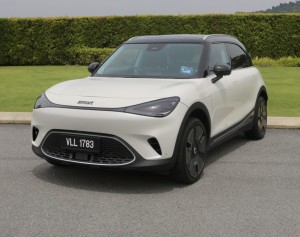
8.8
smart #1 (Premium): Agile, engaging, roomy, premium motoring
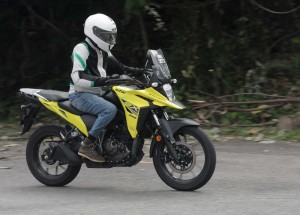
6.6
Suzuki V-Strom 250 SX: Multi terrain warrior
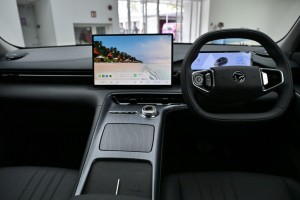
Proton e.MAS 7 impresses in quick dynamic driving exercises
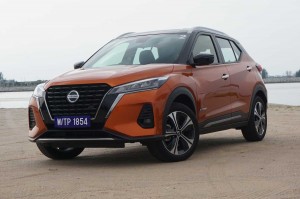
Nissan Kicks e-Power: Kicking off a new efficiency
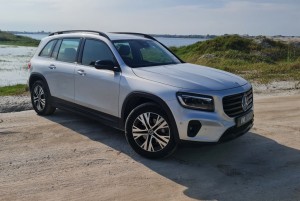
6.8
Mercedes-Benz GLB 200: Measured versatility
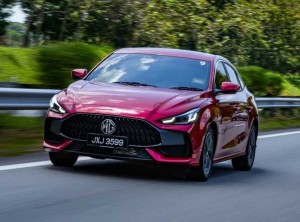
MG5: Slick and comfortable cruiser
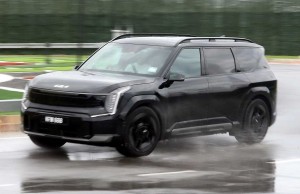
8.2
Kia EV9: Prime cut

8.0
Triumph Tiger 1200 GT Pro: High adventure on two wheels
Videos

The Snowball – Lamborghini’s Heartwarming Christmas Story of...

EVOGO battery swapping solution showcased at IAA Mobility 20...

Jaguar's Bold Type 00 Concept: A Glimpse into the Future of ...
